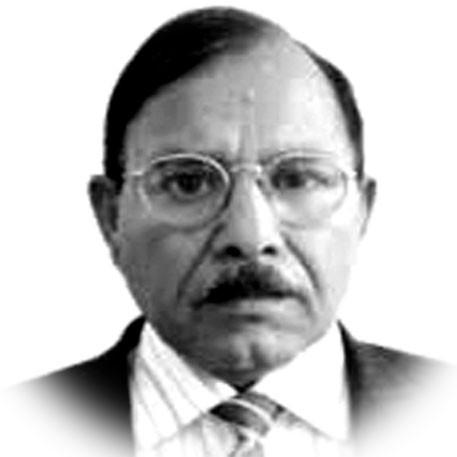Malik Ashraf
Notwithstanding the fact that the nations signatory to the UN Charter, particularly the powerful ones, never tire to pronounce their adherence to the principle enshrined in it, the reality is that they invariably are guided by their own self-defined national and strategic interests in firming up their response to the bilateral and global issues. Their selective application of the principles of UN charter is the real cause of the inability of UN to end wars and conflicts and deal effectively with other challenges like terrorism in an indiscriminate manner. Reportedly the UNSC 1267 Sanctions Committee has objected to the Pakistani request to designate an Indian national Venumadhav Dongara as terrorist. The man is an engineer with an Indian construction company active in Afghanistan and one of the four individuals linked to terrorist attacks in Pakistan from the Afghan soil. Pakistan had proposed the designation of these Indian nationals namely Venumadhav Dongara, Ajoy Mistry, Gobinda Patnaik and Angara Appaji as terrorists in 2019 under the United Nations 1267 Sanctions List.
Pakistan while expressing disappointment at the response of the UNSC Committee has expressed the hope that the listing request in regards to other three Indian nationals would be given due consideration in an objective and transparent manner. According to media reports US had formally informed all members of the UNSC before the meeting that it was officially blocking and thus terminating a proposal to proscribe an Indian national by the UNSC 1267 Sanctions Committee. This move clearly indicates that US would also make sure that the efforts to proscribe other three individuals are also obstructed. The hope expressed by Pakistan is of no consequence when the US is all out for India in this regard. United States of America is a country which tries to announce its anti-terrorism credentials from every convenient roof-top and has even spent billions of dollars and sacrificed lives in the fight against it, but regrettably the effort has a selective hue. While it has kept continuously pressurizing Pakistan to do more in spite of its efforts— dictated by her own geo-strategic interests to quell terrorism—and indiscriminate action against all the terrorist entities based on its soil. It has never condemned the Indian involvement in incidents of terrorism in Pakistan.
The US and India are strategic partners and dictated by her strategic and commercial interests the former is prepared to cast aside all the principles enshrined in the UN Charter, international treaties and conventions. Pakistan has been under tremendous pressure by the US to proscribe certain organizations for their alleged involvement in terrorism and even used its influence on the UN to have them declared as terrorist entities. It is also the taker of the Indian narrative of cross-border terrorism which encourages India to continue with its state terrorism in the India-occupied Jummu and Kashmir. The repeal of article 370 of the Indian constitution that ended the special status of IO&JK and its subsequent amalgamation in the Indian union through Jummu and Kashmir Re-organization Act 2019, in blatant violation of the UN resolutions, also has not invoked any condemnation by the US, except for muffled concern on the deteriorating situation in the valley. US double standards are also reflected in signing the deal with India for transfer of civil nuclear technology to her in violation of the provisions of Nuclear Non-Proliferation Treaty, the push to make India a member of the NSG and the move to make India a permanent member of the UNSC.
The US and its allies in the West look the other way to the Indian oppression in IO&JK and its involvement in sponsoring terrorism within Pakistan which is an irrefutable reality in view of the confessions made by Kalbhushan Jhadav an Indian naval officer who was arrested in Pakistan and his subsequent conviction. It is pertinent to point out that the International Court of Justice where India filed a case for having his conviction quashed and his repatriation to India, did not challenge the grounds on which he was convicted but only asked Pakistan to accord consular access to India and completion of the legal formalities in regards to appeal against the sentence in consonance with its own laws. It clearly indicated that the grounds on which he was convicted were not objected to by the ICJ and Pakistan stood vindicated in that regard.
It is really regrettable to note that US and its allies by showing indifference to the snow-balling deterioration in the regional security situation due to the Indian actions in IO&JK and its continued belligerent posture against Pakistan, are encouraging India to continue its oppressive actions in the valley and also persist with her aggressive designs against Pakistan. India under Modi, an adherent to the supremacist RSS ideology, is a real threat to the security of this region. Pakistan has repeatedly warned the world about the dangers lurking on the horizon.
Pakistan has also been warning the world about yet another false-flag operation by India to divert the attention of the world community. Any such indiscretion by India would surely provoke a matching response like the one on 26 February last year. One never knows what could transpire subsequently. Pakistan and India are nuclear powers and any clash between them could prove disastrous for the region and beyond. The situation warrants immediate attention by the United Nations as a peace promoting world body before it is too late. The US and its allies also need to look beyond their strategic interests and fulfil their obligations in regards to promoting world peace.
— The writer is freelance columnist based in Islamabad.










